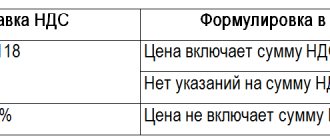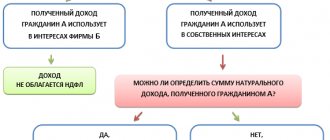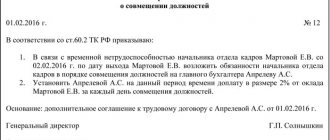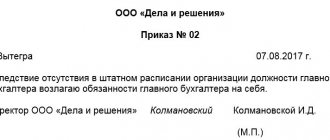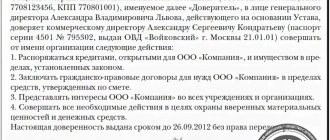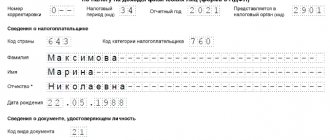Tax agents
Foreign organizations providing services in electronic form specified in paragraph 1 of Article 174.2 of the Tax Code of the Russian Federation, the place of sale of which is recognized as the territory of the Russian Federation, calculate and pay the tax themselves.
This responsibility may also be assigned to the tax agent. Tax agents for the provision of electronic services from January 1, 2019 are recognized as intermediaries who carry out activities involving participation in settlements directly with buyers of services on the basis of agency agreements, commission agreements, agency agreements or other similar agreements. Separate divisions of foreign companies located on the territory of the Russian Federation and registered with the tax authorities can also act as intermediaries (Clause 10, Article 174.2 of the Tax Code of the Russian Federation).
But paragraph 9 of Article 174.2 of the Tax Code of the Russian Federation, according to which their direct buyers - Russian organizations and individual entrepreneurs - were recognized as tax agents for electronic services until January 1, 2022, has become invalid since that date. They are no longer recognized as tax agents.
As for not electronic, but other services, the provision of which is subject to VAT on the territory of the Russian Federation, when they are provided by a foreign seller who is not registered with the tax authorities, the Russian buyer pays VAT. He becomes a tax agent for VAT and must withhold tax and transfer it to the budget (clause 4 of article 174 of the Tax Code of the Russian Federation).
UrDela.ru
On the issue concerning the procedure for paying value added tax in connection with amendments to Article 174 of the Tax Code of the Russian Federation, see letter of the Federal Tax Service of the Russian Federation dated October 29, 2008 N ShS-6-3/
Part 1. Payment of tax on transactions recognized as an object of taxation in accordance with subparagraphs 1 - 3 of paragraph 1 of Article 146 of this Code on the territory of the Russian Federation is made based on the results of each tax period based on the actual sale (transfer) of goods (fulfillment, including for own needs, work, provision, including for own needs, services) for the expired tax period in equal shares no later than the 20th day of each of the three months following the expired tax period, unless otherwise provided by this chapter.
When importing goods into the customs territory of the Russian Federation, the amount of tax payable to the budget is paid in accordance with customs legislation.
Part 2. The amount of tax payable to the budget for sales transactions (transfer, execution, provision for one’s own needs) of goods (work, services) on the territory of the Russian Federation is paid at the place of registration of the taxpayer with the tax authorities.
Part 3. Tax agents (organizations and individual entrepreneurs) pay the tax amount at their location.
Part 4. Payment of tax by the persons specified in paragraph 5 of Article 173 of this Code is made based on the results of each tax period based on the corresponding sales of goods (work, services) for the expired tax period no later than the 20th day of the month following the expired tax period .
In cases of implementation of works (services), the place of implementation of which is the territory of the Russian Federation, by taxpayers - foreign persons who are not registered with the tax authorities as taxpayers, tax payment is made by tax agents simultaneously with the payment (transfer) of funds to such taxpayers.
A bank servicing a tax agent does not have the right to accept an order from him to transfer funds in favor of specified taxpayers, if the tax agent has not also submitted to the bank an order to pay tax from an account opened with this bank if there are sufficient funds to pay the entire amount of tax.
Part 5. Taxpayers (tax agents), including those listed in paragraph 5 of Article 173 of this Code, are required to submit the corresponding tax return to the tax authorities at the place of their registration no later than the 20th day of the month following the expired tax period, unless otherwise provided by this chapter.
Part 6. Lost force on January 1, 2008.
— Federal Law of July 27, 2006 N 137-FZ. ‹ Article 173 (Tax Code of the Russian Federation). Amount of tax payable to the budget Up Article 174.1 (Tax Code of the Russian Federation). Peculiarities of calculation and payment of tax to the budget when carrying out operations in accordance with a simple partnership agreement (joint activity agreement), property trust management agreement or concession agreement ›
Foreign company – seller of electronic services
Foreign organizations that provide services in electronic form on the territory of the Russian Federation according to the list from paragraph 1 of Article 174.2 of the Tax Code of the Russian Federation and carry out settlements directly with buyers of these services are subject to registration with the tax authorities.
A foreign company must:
- register with the Federal Tax Service (clause 4.6 of Article 83 of the Tax Code of the Russian Federation);
- calculate VAT and pay it to the budget by the 25th day of the month following the reporting quarter;
- report the VAT amounts to the Federal Tax Service (submit an electronic declaration).
The tax base of foreign companies is determined by the cost of services provided, which includes tax, based on the actual sales price on the last day of the quarter during which the recipient of the service paid for it.
An estimated interest rate of 16.67% is applied to the tax base.
Article 174 of the Tax Code of the Russian Federation. Procedure and deadlines for paying taxes to the budget
1. Payment of tax on transactions recognized as an object of taxation in accordance with subparagraphs 1 - 3 of paragraph 1 of Article 146 of this Code on the territory of the Russian Federation is made at the end of each tax period based on the actual sale (transfer) of goods (fulfillment, including for own needs, works, provision, including for own needs, services) for the expired tax period in equal shares no later than the 25th day of each of the three months following the expired tax period, unless otherwise provided by this chapter.
Unless otherwise provided by subclause 1.1 of clause 1 of Article 151 of this Code, when importing goods into the territory of the Russian Federation and other territories under its jurisdiction, the amount of tax payable to the budget is paid in accordance with the customs legislation of the Customs Union and the legislation of the Russian Federation on customs affairs.
2. The amount of tax payable to the budget for sales transactions (transfer, execution, provision for one’s own needs) of goods (work, services) on the territory of the Russian Federation is paid at the place of registration of the taxpayer with the tax authorities.
3. Tax agents (organizations and individual entrepreneurs) pay the tax amount at their location.
4. Payment of tax by the persons specified in paragraph 5 of Article 173 of this Code is made based on the results of each tax period based on the corresponding sales of goods (work, services) for the expired tax period no later than the 25th day of the month following the expired tax period.
In cases of implementation of works (services), the place of implementation of which is the territory of the Russian Federation, by taxpayers - foreign persons who are not registered with the tax authorities as taxpayers, tax payment is made by tax agents simultaneously with the payment (transfer) of funds to such taxpayers.
A bank servicing a tax agent does not have the right to accept an order from him to transfer funds in favor of specified taxpayers, if the tax agent has not also submitted to the bank an order to pay tax from an account opened with this bank if there are sufficient funds to pay the entire amount of tax.
5. Taxpayers (including those who are tax agents), as well as persons specified in paragraph 5 of Article 173 of this Code, are required to submit to the tax authorities at the place of their registration the corresponding tax return in the established format in electronic form via telecommunication channels through an electronic operator document flow no later than the 25th day of the month following the expired tax period, unless otherwise provided by this chapter.
Tax agents who are not taxpayers or who are taxpayers exempt from fulfilling taxpayer obligations related to the calculation and payment of tax are required to submit a corresponding tax return to the tax authorities at their place of registration no later than the 25th day of the month following the expired tax period .
The persons specified in paragraph two of this paragraph in the event that they issue and (or) receive invoices when carrying out business activities in the interests of another person on the basis of commission agreements, agency agreements providing for the sale and (or) acquisition of goods (work, services), property rights on behalf of the commission agent (agent), or on the basis of transport expedition contracts (if, when determining the tax base in the manner established by Chapters 23, 25, 26.1 and 26.2 of this Code, income in the form of remuneration for the execution of transport expedition contracts is taken into account as part of income), and also when performing the functions of a developer, they are required to submit to the tax authorities at the place of their registration no later than the 25th day of the month following the expired tax period, the corresponding tax return in the established format in electronic form via telecommunication channels through an electronic document management operator.
When submitting a tax return on paper, if this paragraph provides for the obligation to submit a tax return (calculation) in electronic form, such a declaration is not considered submitted.
5.1. The tax return must include information specified in the taxpayer’s purchase book and sales book.
In the case of issuing and (or) receiving invoices when a taxpayer (tax agent) carries out business activities in the interests of another person on the basis of commission agreements, agency agreements providing for the sale and (or) acquisition of goods (work, services), property rights on behalf of commission agent (agent), or on the basis of transport expedition contracts, as well as when performing the functions of a developer, the tax return includes the information specified in the logbook of received and issued invoices in relation to the specified activity.
The persons specified in paragraph 5 of Article 173 of this Code include in the tax return the information specified in the issued invoices.
The composition of the information specified in the purchase book and sales book, in the journal of received and issued invoices, in issued invoices included in the tax return, is determined by the federal executive body authorized for control and supervision in the field of taxes and fees.
5.2. Persons who are not taxpayers, taxpayers exempt from fulfilling taxpayer obligations related to the calculation and payment of tax, who are not recognized as tax agents, in the event that they issue and (or) receive invoices when carrying out business activities in the interests of another person on the basis of commission agreements , agency agreements providing for the sale and (or) acquisition of goods (work, services), property rights on behalf of the commission agent (agent), or on the basis of transport expedition agreements (if, when determining the tax base in the manner established by Chapters 23, 25, 26.1 and 26.2 of this Code, income includes income in the form of remuneration for the execution of transport expedition contracts), and also when performing the functions of a developer, they are required to submit to the tax authorities at the place of their registration the appropriate log of received and issued invoices in relation to the specified activities in the established format in electronic form via telecommunication channels through an electronic document management operator no later than the 20th day of the month following the expired tax period.
6. Lost force on January 1, 2008. — Federal Law of July 27, 2006 N 137-FZ.
7. Foreign organizations that have several separate divisions on the territory of the Russian Federation independently select a division at the place of registration with the tax authority of which they will submit tax returns and pay tax in general on the operations of all separate divisions of the foreign organization located on the territory of the Russian Federation.
Foreign organizations notify the tax authorities at the location of their separate divisions on the territory of the Russian Federation of their choice in writing. < Article 173 of the Tax Code of the Russian Federation > Article 174.1 of the Tax Code of the Russian Federation
Which electronic services are subject to VAT?
VAT is imposed on electronic services of foreign companies, the list of which is given in paragraph 1 of Article 174.2 of the Tax Code of the Russian Federation. These are, in particular:
- sale of computer programs, applications, games and databases, including updates to them;
- advertising services on the Internet and provision of advertising platforms;
- online auctions;
- platforms for posting offers for the sale of goods and services;
- data storage;
- hosting provider services;
- domain registration;
- granting rights to digital books, music, audiovisual products, graphic images;
- administration of information systems and Internet sites;
- storage and processing of information, provided that the person providing the information has access to it via the Internet;
- searching and presenting information about potential buyers;
- access to Internet search engines;
- website visit statistics, etc.
A mandatory condition is the provision of services at the consumer’s place of business – on the territory of the Russian Federation.
If the service is not electronic
In a commentary letter, the Russian Ministry of Finance explained another situation with foreign providers of electronic services. This is the case when such a foreign company, in addition to services in electronic form, provides other services to a Russian organization, the place of sale of which, on the basis of Article 148 of the Tax Code of the Russian Federation, is recognized as the territory of the Russian Federation.
The responsibility for calculating and paying VAT to the budget on these services also rests with the foreign organization. Therefore, a Russian organization purchasing the specified services from a foreign organization also does not have the obligation to pay VAT as a tax agent. This means that the registration of a foreign company with the Russian tax authority in connection with the provision of services in electronic form exempts Russian organizations from fulfilling the duties of a tax agent for VAT when they purchase from such a foreign company any services the place of sale of which is recognized as the territory of the Russian Federation.
New tax accounting for exchange rate differences
Decree No. 504 defines a new procedure for accounting for exchange rate differences for tax purposes:
— income tax;
— a single tax for producers of agricultural products (hereinafter referred to as the single tax).
In short, in contrast to the previous procedure, organizations received the right to take into account exchange rate differences arising during the year in their tax bases in the last reporting period of this year.
Let us dwell in more detail on the provisions of this Decree.
The essence of the new order
Decree N 504 allows income tax payers independently choose when to include exchange rate differences arising during the calendar year as part of non-operating income and (or) expenses <*>:
- or during the tax period on the dates determined in accordance with Art. 174 and 175 NK. In these articles, no special dates for their reflection are established in relation to exchange rate differences; therefore, exchange rate differences are included in non-operating income and (or) expenses on the date of their recognition as income and expenses in accounting <*>. This is the usual procedure that was used by payers before in accordance with the Tax Code. With this accounting option, exchange rate differences are reflected in income tax returns for each reporting period <*>, i.e. quarterly;
— or in the last reporting period of the corresponding calendar year. This is new. When choosing this option, exchange rate differences for the entire year are reflected in the declaration for the fourth quarter of the corresponding year. This declaration is submitted to the tax authorities no later than March 20 of the year following the expired <*>.
For single tax payers, the tax base is determined as the monetary expression of gross revenue. For the purposes of this tax, it consists of revenue from the sale of goods (work, services), property rights and non-operating income. Moreover, non-operating income includes income included in accordance with the Tax Code as part of non-operating income when calculating income tax, except for those specified in subparagraph. 3.1 - 3.3, 3.18, 3.30 - 3.32 art . 174 NK <*>. Exchange differences that form income are specified in clause 3.20 of Art. 174 of the Tax Code , they are not included in the exceptions, therefore they are included in the tax base of the single tax. Exchange differences that form expenses are not taken into account when taxed with a single tax.
Decree N 504 gives single tax payers the right to choose the period for including exchange rate differences arising during a calendar year in non-operating income <*>:
- or on dates determined in accordance with Art. 174 Tax Code, during the tax period (year) <*>, i.e. in the usual way. For organizations paying VAT monthly/quarterly, the reporting period of the single tax is recognized as a calendar month/calendar quarter, respectively <*>. If you choose the usual procedure for accounting for exchange rate differences, they are reflected in the single tax declarations monthly/quarterly (depending on the reporting period);
— or in the last reporting period of the corresponding calendar year. If an organization chooses this accounting option, then exchange rate differences for the entire year are reflected in the declaration for December / for the fourth quarter of the corresponding year (depending on the reporting period). It is submitted to the tax authority no later than the 20th day of the month following the expired reporting period <*>, i.e. no later than January 20 of the following year.
Important! The chosen procedure for tax accounting of exchange rate differences is reflected in the accounting policy of the organization. During the current tax period, this procedure cannot be changed <*>.
Choosing the period for including exchange rate differences in non-operating income and (or) expenses is a right , not an obligation. We believe that if an organization does not intend to exercise this right and takes into account exchange rate differences in the generally established procedure in the Tax Code, nothing can be indicated on this issue in the accounting policy or it can be determined that the procedure established by the Tax Code is applied.
What exchange rate differences are regulated by Decree N 504?
Decree No. 504 establishes tax accounting for exchange rate differences, which collectively meet the following conditions <*>:
1) they are determined in the manner established by the legislation on accounting and reporting. Let us remind you that this procedure is established in the National Accounting Standards of Ukraine dated October 29, 2014 N 69;
2) are included in accordance with tax legislation as part of non-operating income and (or) expenses.
For income tax purposes, Decree No. 504 covers exchange rate differences, which are defined in clause 3.20 of Art. 174, clause 3.26 art. 175 of the Tax Code are exchange rate differences arising when recalculating the value of assets and liabilities expressed in foreign currency and (or) Belarusian rubles in an amount equivalent to a certain amount in foreign currency, determined in the manner established by the legislation of the Republic of Belarus (i.e. in the manner NAS N 69).
It should be noted that income in the form of exchange rate differences arising during the revaluation of accounts receivable for settlements with foreign organizations for dividends due from them, although subject to income tax at a reduced rate of 12% <*>, is included in non-operating income on a general basis <* >. Therefore, such exchange rate differences are also subject to Decree No. 504.
Decree No. 504 does not apply to :
— on the amount of positive and negative exchange rate differences that arise for recipients of foreign gratuitous assistance when converting into Belarusian rubles the value of assets and liabilities associated with the receipt and use of foreign gratuitous assistance, expressed in foreign currency, with the targeted use of foreign gratuitous assistance. Such exchange rate differences are specified in clause 3.20 of Art. 174, clause 3.26 art. 175 of the Tax Code as exceptions, therefore the new accounting procedure established by Decree No. 504 does not apply to them;
- for expenses in the form of exchange rate differences arising when recalculating the value of assets and liabilities expressed in foreign currency and (or) Belarusian rubles in an amount equivalent to a certain amount in foreign currency, determined in the manner established by the legislation of the Republic of Belarus, arising in connection with the implementation of costs not taken into account for tax purposes in accordance with Art. 173 of the Tax Code and other provisions of legislation <*>. These exchange rate differences are not subject to inclusion in non-operating expenses <*>, and therefore are not regulated by Decree N 504. An example of such expenses, in particular, are exchange rate differences arising when recalculating controlled debt, which, due to the application of thin capitalization rules at the end of the year, are classified as costs not taken into account when taxing profits <*>;
— for the amounts of positive and negative exchange rate differences that not included in non-operating income and (or) expenses due to the application of a special tax regulation procedure . For example, according to Decree N 166, residents of the Great Stone industrial park and the joint Belarusian-Chinese company for the development of this park during the period of validity of the special legal regime of the industrial park do not include for the purpose of calculating income tax in non-operating income and expenses <*> exchange rates differences arising when recalculating the value of assets and liabilities expressed in foreign currency and (or) Belarusian rubles in an amount equivalent to a certain amount in foreign currency <*>;
- for positive and negative differences arising when repaying receivables or payables, including in connection with receiving payment in an amount exceeding the amount of revenue and (or) non-operating income <*>. In practice, they are called “ total differences ”. Decree No. 504 does not apply to them, since they are not exchange rate differences.
For the purposes of the single tax, exchange differences included in non-operating income on the basis of clause 3.20 of Art. 174 NK <*>.
For whom is Decree N 504?
The new procedure for accounting for exchange rate differences can be applied by organizations (with the exception of banks) , incl. foreign organizations operating on the territory of the Republic of Belarus through a permanent representative office, simple partnerships (participants in a joint activity agreement, except for participants in a consortium lending agreement) <*>.
For the purposes of Decree No. 504, the term “banks” is used in the meaning defined in clause 3.2 of Art. 13 NK <*>. In accordance with this norm, banks for tax purposes include <*>:
— Bank of the Republic of Belarus;
— non-banking credit and financial organization of the Republic of Belarus;
— OJSC “Development Bank of the Republic of Belarus”;
— OJSC “Belarusian Currency and Stock Exchange”;
— OJSC “Asset Management Agency”;
- another specialized financial organization of the Republic of Belarus, which is not a bank, but operates on the basis of a legislative act, in accordance with which it carries out accounting in accordance with the regulatory legal acts of the National Bank of the Republic of Belarus.
Special cases
Decree No. 504 defines the specifics of reflecting exchange rate differences in tax returns if during the year there were cases when:
— an organization or a branch that fulfills its tax obligations is liquidated
— a foreign organization ceases to operate on the territory of the Republic of Belarus through a permanent representative office <*>;
- agreement (joint activity agreement) is terminated <*>;
— there is a reorganization of the organization in the form of division, accession, merger <*>.
If in these cases the organization has chosen the option of reflecting exchange rate differences in tax accounting in the last reporting period of the corresponding calendar year, then exchange rate differences are included in non-operating income and (or) expenses when determining the tax base for income tax (in non-operating income when determining tax single tax base) when submitting a tax return (calculation) in accordance with paragraphs 1, 3, 4 and 6 of Art. 44, paragraph 4 – 6 art. 45 NK <*>.
Transition from one tax system to another
In cases where the procedure for tax accounting of exchange rate differences is applied, providing for their reflection in the last reporting period of the corresponding calendar year and a transition is made (except for the transition from the beginning of the calendar year):
1) from the general taxation procedure to a single tax , exchange differences arising in the calendar year during the period of application of the OSN are included in non-operating income and (or) expenses when determining the tax base of the income tax for the reporting period preceding the month from which application begins single tax <*>.
For example, an organization switches from OSN to a single tax from the third quarter of the current year. Exchange differences arising from January 1 to June 30 of this year must be included in the income tax return for the second quarter;
2) from the single tax to the general taxation procedure, exchange rate differences arising in the calendar year during the period of application of the single tax are included in non-operating income when determining the tax base of the single tax for the reporting period preceding the month from which the application of the OSN begins <*>.
For example, an organization switches from a single tax to OSN from the fourth quarter of the current year. Exchange differences that arose from January 1 to September 30 of this year must be included in the single tax return for September (if the reporting period is a month) or for the third quarter (if the reporting period is a quarter).
Period of validity of Decree No. 504
The new procedure applies from the date of entry into force of Decree No. 504, i.e. from January 6, 2022, but applies to legal relations arising from January 1, 2022 <*>.
Consequently, organizations have the right to take into account exchange rate differences that arose during 2022 in the manner established by Decree N 504. In this case, due to changes in legislation, a change is made to the accounting policy for 2019 <*>.
